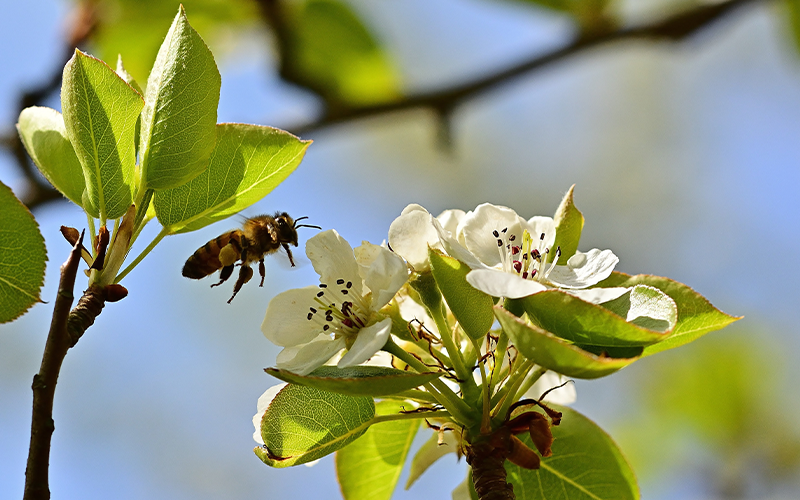The Importance of Honey Bees in Human Life

Honey bees are often associated with honey, but their role in human life goes far beyond producing this golden nectar. These tiny pollinators are crucial to our ecosystem, agriculture, and even global food security. Their impact extends from maintaining biodiversity to supporting economies and providing health benefits.
1. The Role of Honey Bees in Pollination
Honey bees are among the most efficient pollinators in the world. They transfer pollen from one flower to another, enabling plants to reproduce. This process is vital for:
– Food Production: Nearly 75% of global crops depend on pollinators like bees, including fruits, vegetables, nuts, and oilseeds. Crops such as apples, almonds, coffee, and blueberries rely heavily on bee pollination.
– Biodiversity: Pollination helps maintain diverse plant species, which support wildlife habitats and contribute to ecological balance.
– Economic Value: The economic contribution of pollination is estimated at billions of dollars annually, as it boosts agricultural yields and quality.
2. Honey Bees and Environmental Health
Bees are indicators of environmental health. When bee populations decline, it often signals problems such as pesticide overuse, habitat destruction, and climate change. Protecting bees means protecting our environment by:
– Reducing chemical pesticides that harm pollinators
– Encouraging organic farming and sustainable agriculture
– Conserving natural habitats like forests and meadows
3. The Production of Honey and Its Benefits
Honey is one of nature’s best gifts, offering numerous health benefits:
– Nutritional Value: Honey is rich in antioxidants, enzymes, and essential nutrients that boost immunity.
– Medicinal Uses: It has antibacterial and anti-inflammatory properties, making it effective for treating wounds, sore throats, and digestive issues.
– Natural Energy Source: Honey provides quick and sustained energy, making it a preferred natural sweetener for athletes and health-conscious individuals.
4. Other Valuable Bee Products
Beyond honey, bees produce several beneficial products:
– Beeswax: Used in cosmetics, candles, and natural skincare products.
– Propolis: A resinous substance with powerful antibacterial and antiviral properties.
– Royal Jelly: Known for its immune-boosting and anti-aging properties.
5. The Threats Facing Honey Bees
Despite their importance, honey bee populations are declining due to:
– Pesticides and Chemical Exposure
– Climate Change and Habitat Loss
– Diseases and Parasites like the Varroa Mite
6. How We Can Protect Honey Bees
Individuals and communities can take simple steps to help honey bees thrive:
– Plant Bee-Friendly Flowers: Growing nectar-rich plants like sunflowers, lavender, and wildflowers provides essential food sources.
– Avoid Harmful Pesticides: Using organic or natural alternatives helps protect bee populations.
– Support Local Beekeepers: Purchasing raw, local honey supports sustainable beekeeping.
– Raise Awareness: Educating others about the importance of bees can inspire conservation efforts.
Conclusion
Honey bees are indispensable to our food system, environment, and health. Their decline poses a major risk to biodiversity and food security. By taking action to protect them, we are ensuring a healthier planet and a sustainable future for generations to come.
Let’s protect our pollinators, because without bees, life as we know it would change dramatically!
